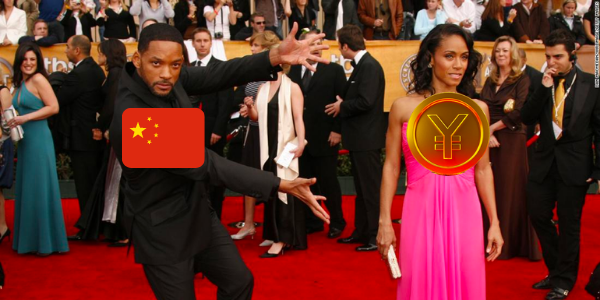Get smarter than your boss in 5 minutes with today's business news.
🤑 AirTree Ventures raised $700 million for 3 new VC funds
💰 China will showcase its digital-yuan at the Beijing Olympics
🧩The New York Times has bought Wordle
Hey hey, Flux fam!
Here's everything you need to know today - in under 3 minutes.
🤑 AirTree Ventures raised $700 million for 3 new VC funds
💰 China will showcase its digital-yuan at the Beijing Olympics
🧩The New York Times has bought Wordle
Feel like there's a tonne of fresh faces in movies these days? Ya not imagining it. Hollywood agencies are now seeking out TikTok creators to star in movies, in the hopes that they can leverage their massive followings to build mini-media empires.
.gif)
Background: AirTree Ventures is an Aussie venture capital and private equity firm founded back in 2014.
What happened: Since then, AirTree has had some pretty big wins - and they've invested in some pretty big Aussie companies (think: Canva, Who Gives A Crap, Brosa and more).
What else: Now, the company has raised $700 million in funding to launch three new venture capital funds. There's $450 million for AirTree's existing companies, $200 million for seed funding and a further $50 million focused solely on Web3 companies (aka the 'future' of the internet).
💡Venture capitalists, or VCs, are investors that invest money in companies in exchange for a stake in that company (generally be 10% - 30%) in each investment round.
💡VCs generally seek out high risk, high reward companies...so they can earn massive return on their investments if the companies are successful. FYI, a lot of these businesses actually fail...but others? They turn into Canva.
💡However, Web3 companies might not be so willing to hand over equity. The ethos of the Web3 movement is that everything is decentralised - ya know, F-the-system-type ownership. So, VCs may need to adjust their investment approach to get in on the ride.

Background: Wordle is the very addictive, highly talked-about daily word puzzle game where players get 6 goes to try and guess a 5-letter word. IYKYK.
What happened: The creator made it for himself and his partner to play, before making the game public for the world in October 2021. And from just 90 players on November 1 2021, the game now has more than 3 million players.
What else: It ain't surprising that a big publisher like The New York Times wanted in on Wordle. The company reportedly purchased the game for low seven figures. Good news is, the NY Times say the game will remain free. At least for now.
💡Word-based games like crosswords have been a key ingredient in the publishing business for decades. And that's because they drive huge amounts of engagement.
💡As leading publishers like the NY Times go digital, games and puzzles are becoming even more important to keep audiences engaged with their content.
💡To put it into perspective, the New York Times' crossword currently has around 1 million subscribers...so Wordle and its 3 million players are a hot commodity.

Background: China has been developing a digital currency for a while now. And this month, China's central bank digital currency, the digi-yuan, hit digital wallets.
What happened: Now, China wants to show-off its digi-yuan to the world at the Beijing Winter Olympics. Athletes and spectators will be able to download an app, or get a physical card, that stores the digital yuan.
What else: The juicy part? It'll be only one of 3 payment methods acceptable. That means no Alipay or WeChat Pay. And it's all part of China's ploy to become a key part of the future of digital currency.
💡Move over space race, we are witnessing a currency race between global central banks. Currently, there are 87 countries developing their own digital currencies.
💡Central bank digital currencies (CBDC) and cryptocurrencies are often spoken about interchangeably - but they ain't the same thing.
💡CBDC's are actually legal tender, because they're just a digital representation of a country's existing currency. In other words, China will be able to track all transactions within the digi-yuan. Whereas crypto is totally decentralised and largely anonymous.
Sign up for Flux and join 100,000 members of the Flux family